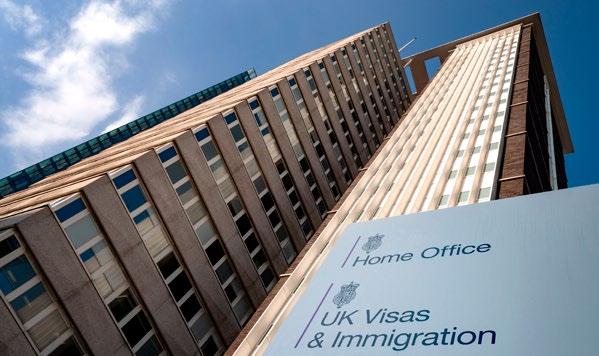
1 minute read
How prepared was the NHS for coronavirus?
The Covid-19 outbreak has increased pressure on the National Health Service (NHS). Dr Armine Ghazaryan, Professor Corrado Giulietti and Professor Jackie Wahba ask whether the NHS has been equipped to save lives; was the government doing enough to ‘protect the NHS’ in the years leading up to the pandemic? Have the Brexit referendum and recent austerity hampered investment in the NHS?
Protecting the capacity of NHS services is seen as vital for dealing with the Covid-19 pandemic. The message from the UK government during the worst phases of the outbreak has been to ‘stay home, save lives, protect the NHS’. But over the last decade, the healthcare sector has not had adequate public funding for it to grow and develop. It has been affected by austerity measures and uncertainty over Brexit. The UK’s ageing population has created additional demand for healthcare services and, coupled with stagnant government spending, this has increased the pressure on service provision.
The research team has found that:
– The UK has higher health expenditure as a share of GDP than the OECD average, but lower healthcare spending per person; have suppressed the growth of the NHS workforce;
– The UK has much fewer doctors (2.8) and nurses (7.8) per 1000 people compared to other European countries;
– The UK is more dependent on foreignborn doctors and nurses than average among OECD countries; and
– The UK needs to grow its NHS workforce to cope with the increase in its ageing population and in preparation for potential future global health crises.
Dr Ghazaryan comments: “At this critical time, it is important for the UK government to “protect the NHS” by ensuring that spending on healthcare is growing in-line with an ageing population. It will be vital to nurture more medical students through training and, crucially for nursing students, through funding. It is also important that shortfalls in the domestic workforce are well-managed. The UK government needs to attract and retain foreign doctors and nurses to enable the UK to cope after the Covid-19 pandemic, through Brexit, and to deal with any future global health emergencies.”
Further reading:
Empowering the NHS: Challenges for the pandemic (ESRC Centre for Population Change Report)
Empowering the NHS: Challenges for the pandemic (CPC Policy Briefing 53)
How prepared was the NHS for coronavirus? (Economics Observatory)










